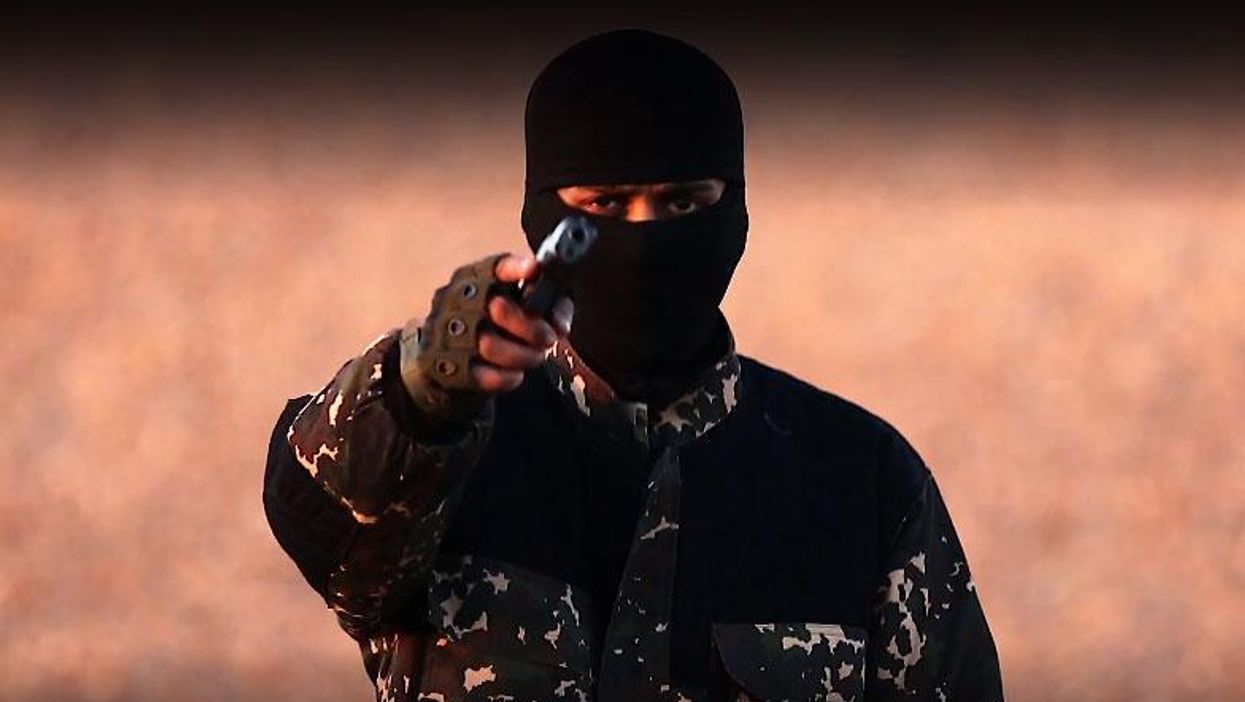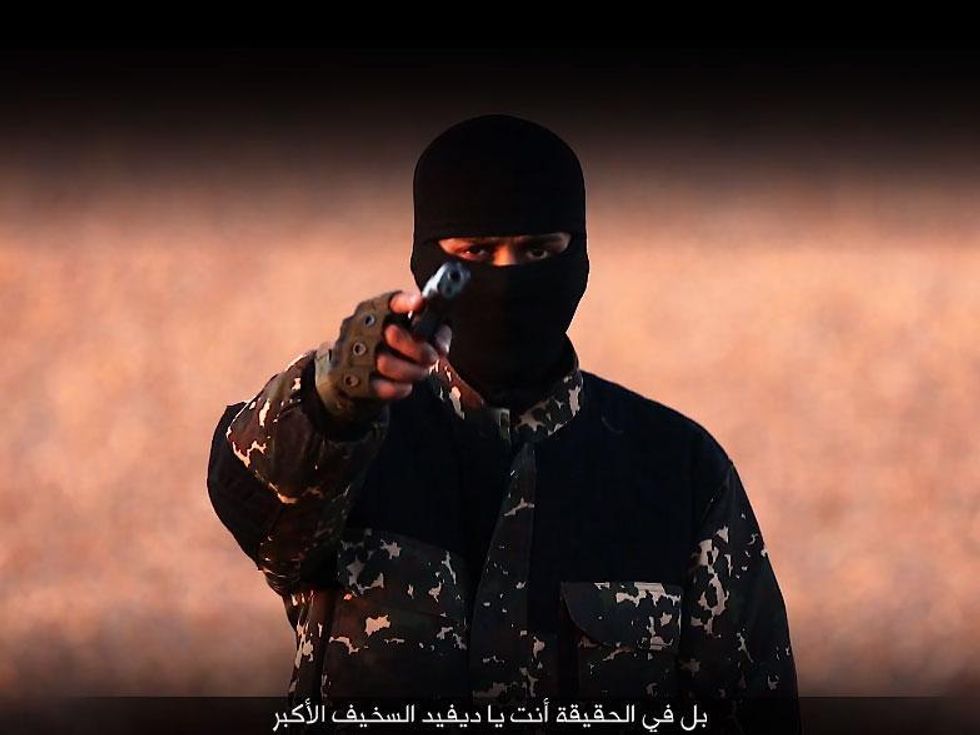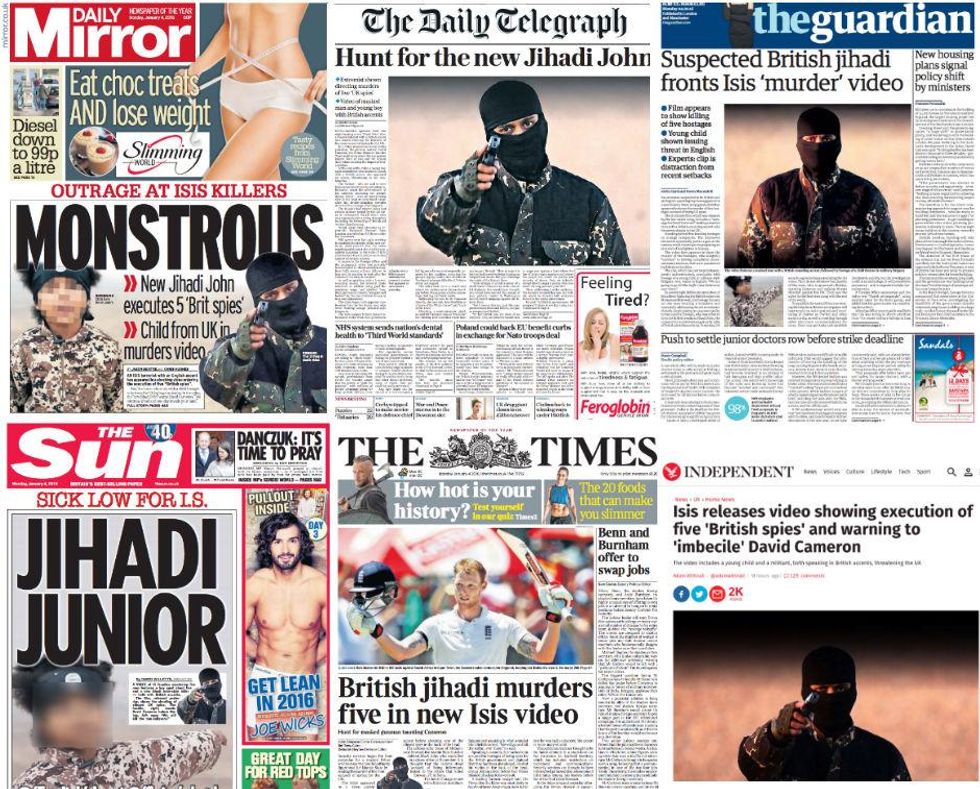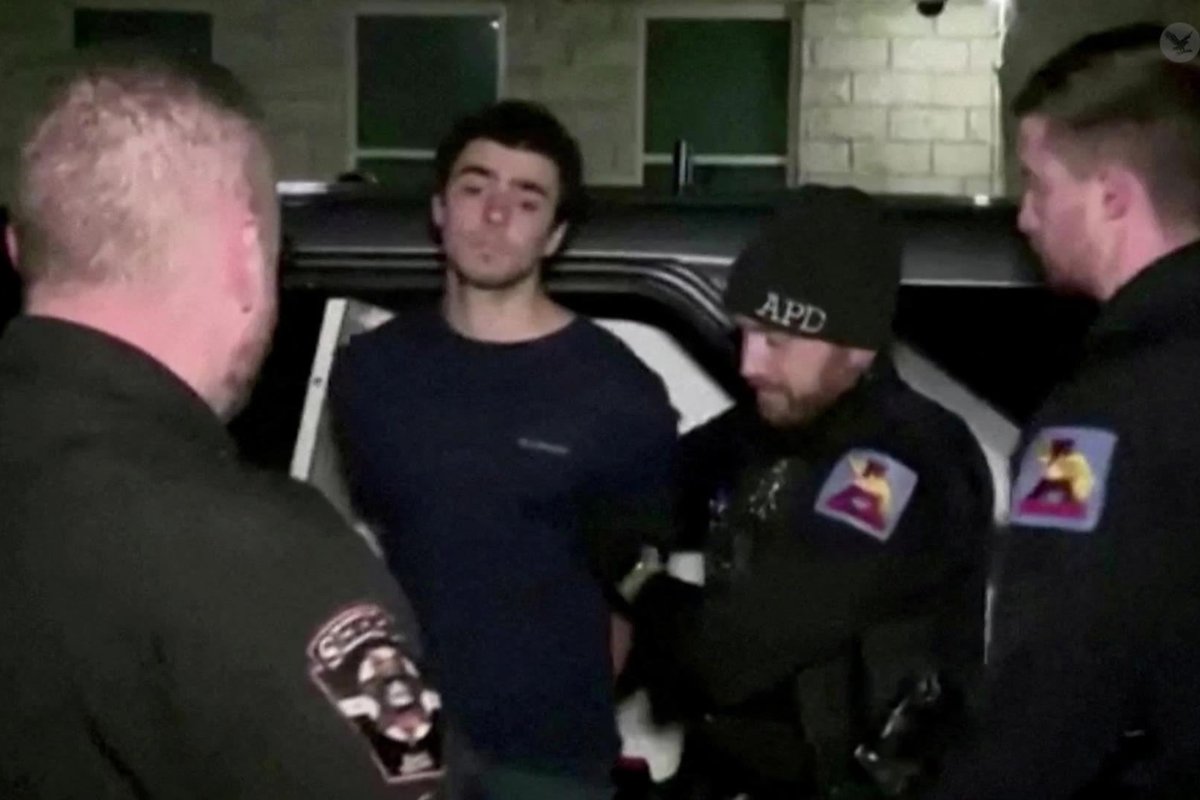News
Evan Bartlett
Jan 04, 2016

Isis released a new propaganda video on Sunday purporting to show the murder of five alleged "British spies".
The main perpetrator as well as a young boy shown later on in the video both spoke with English accents.
Foreign policy experts have suggested the 10-minute video was released as a distraction from Isis's recent military defeats in Iraq.
The video received coverage in most of the national newspapers on Monday morning as well as widespread coverage online, including in our sister publications the Independent and the i paper:
The release of propaganda videos like this present the media with a clear problem. Some have accused the British press of being inadvertently complicit with Isis's aims by disseminating their propaganda to the masses:
However, there is also a need for the media to report the facts, particularly in an age when information (and disinformation) can be spread on social media platforms very easily without any journalists being involved.
As executive editor of Hacked Off, Joan Smith, wrote last year:
We have a responsibility as journalists to report on these murders, but we don't have to reproduce slavishly the most horrific propaganda.
Several newspapers spoke at the time of Alan Henning's murder about their decisions not to publish images of victims in the moments leading up to their death.
Lloyd Embley of the Mirror wrote:
After David Haines was murdered pix of him on his knees were on all the front pages. We decided not to do that again. They can't win.
And the Sun published an editorial, declaring that "we refuse to give his absurd killers the publicity they crave".
As the Independent deputy managing editor Will Gore explained following a particularly graphic set of Isis videos and the attacks at Charlie Hebdo at the beginning of last year, it's all about finding a balance:
We have the right to offend or to distress; but it is the ability to exercise restraint that defines liberal democracy.
Every story should result from judicious decisions about what material to include – and to omit. But when we face the kind of monstrous fanaticism displayed by Isis, a considered response by the media takes on added significance.
Unspeakable acts frequently need to be given a voice by the media. This is not about ignoring the gory details, but about refusing to bend to the narrative of lunatics.
Top 100
The Conversation (0)















